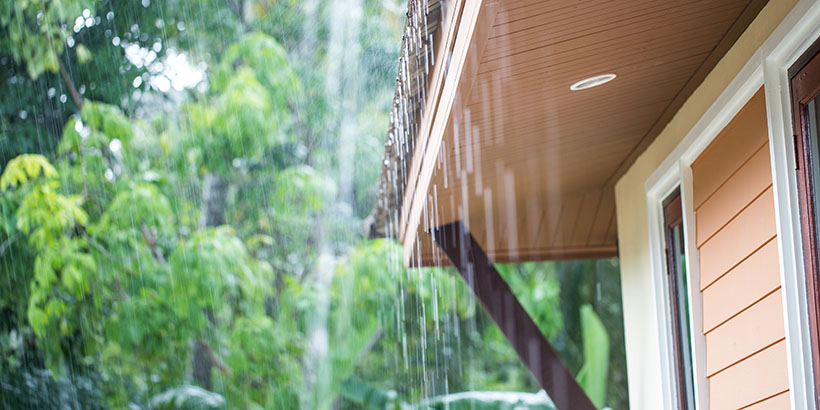When you are in the market to purchase a home, you’re used to considering details such as the price, location and even number of bedrooms and bathrooms. It’s important to also think about how your home might fare in the event of a natural disaster.

Although natural disasters are hard to predict, certain areas are more likely to experience specific disasters than others. Before you buy a home, make sure you are aware of the potential disaster risks in the area and the steps you can take to protect the home.
How do I know if a house is at greater risk from floods, fires or earthquakes?
There are many online resources for you to reference when determining whether a property is at higher risk of certain types of natural disasters, such as flooding, fires and earthquakes.
- Disaster history: The Federal Alliance for Safe Homes’ flash.org allows you to learn about an area’s disaster history based on ZIP code. Although you may be aware of certain threats, such as hurricanes, your preferred ZIP code may be in an earthquake or other disaster zone.
- Flood risk: The Federal Emergency Management Agency maintains flood maps that show how likely it is for an area to flood.
- Fire risk: The U.S. Department of Agriculture and U.S. Forest Service’s Wildfire Risk to Communities tool lets you assesses the risk of fire.
- Earthquake risk: The U.S. Geological Survey has a tool that locates any faults or folds in the area to help you assess the risk of earthquake damage.
If the house is in an area at higher risk of natural disasters, what should I do?
There are several steps you should take before agreeing to purchase a home that is in an area at a higher risk for natural disasters.
First, take stock of the house itself:
- How old is the home? Newer homes may be more up to date on recent building codes and regulations designed to help ensure homes are built to reduce damage from natural disasters.
- Are there already safety upgrades in place? For instance, homes in flood zones may have storm panels, shutters or flood vents. Homes in earthquake-prone areas may have a sill plate foundation. Homes in regions prone to wildfires may be built with fireproof materials.
It is recommended you work with your insurance agent or broker to see what policy endorsements may be needed to insure your home against all risks associated with disasters.
I am willing to buy the home. What’s next?
It’s important to get a home inspected by a professional before you get too far in the buying process.
The inspection will let you know what hidden concerns may exist at the property as well as the possible solutions.
Some sellers may agree to let you do a home inspection before you make a purchase offer, but others will not. You can ask your insurance agent to recommend an inspector, preferably one who specializes in the new and expanding field of peril.
You may be able to negotiate with the seller to complete those repairs before you purchase the home. In addition, you can make your purchase offer contingent on the results of the home inspection, which means that if the inspector finds issues, you have the option to renegotiate the purchase price, have the seller provide a seller credit, or back out of the sale.
What insurance will I need?
Your lender will require you to have homeowners insurance before you buy a house. In areas at higher risk of natural disasters, additional coverages are highly recommended.
Homeowners insurance typically covers your house's structure, your belongings and additional living expenses. In addition, most homeowners insurance policies cover damage caused by fire, but you’ll likely need additional protection against earthquakes and floods. Your insurer may offer add-on coverage for an additional cost.
Buying a home in an area prone to natural disasters carries risk. But by making sure the property has the proper safety features, and having adequate insurance coverage, you can be prepared if disaster strikes.
Last reviewed: September 08, 2025
My Home in your inbox
Sign up to receive resources, tools and tips about buying, owning, refinancing, selling and renting a home in your inbox.